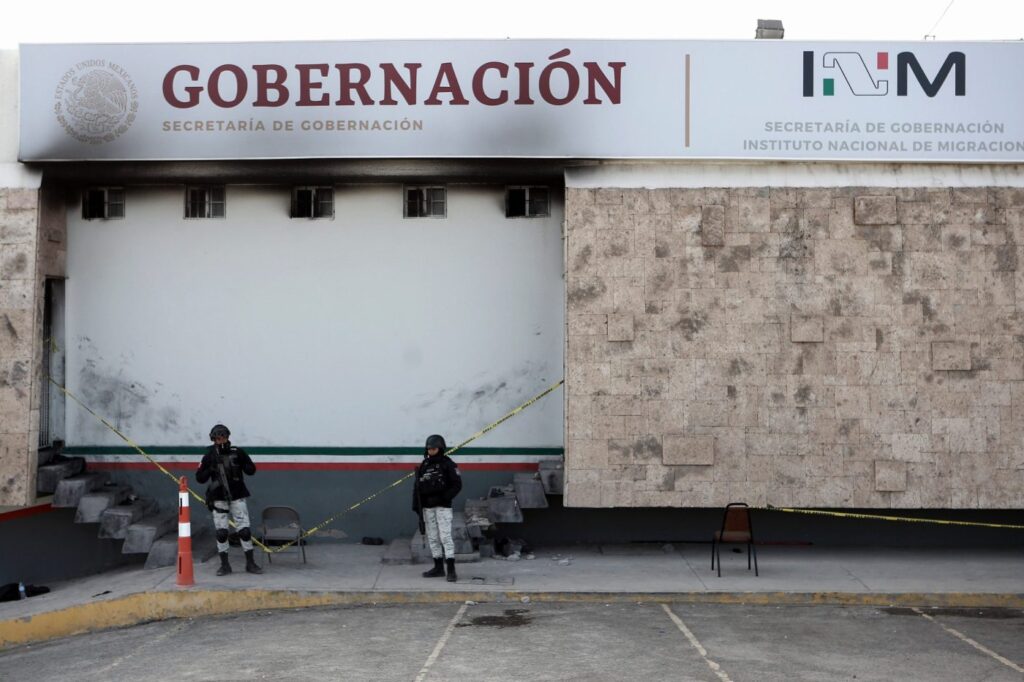
I’ve been a Placentia-based immigration attorney for the past decade, but I’ve never forgotten the story of a young Salvadoran man I met several years ago. When Enrique (a pseudonym to protect his privacy), a married father with two school-age children, witnessed a police murder in his village, his world turned upside down. Soon after his friend who was with him that night was killed, Enrique started receiving death threats. The family made the impossible decision to send him north in search of safety.
After Enrique made his way across the border, he turned himself into officials and asked to apply for asylum. This is a well-worn path; In 1980, the United States passed a law allowing a person with a “well-founded fear of persecution” to apply for asylum in accordance with United Nations conventions. Enrique was let into the country and connected with his brother. While he waited for an immigration judge to hear his case, he was given the right to work. The judge who heard his case granted him asylum. Later, when his wife found a dead dog on her doorstep, Enrique was allowed to petition his family to join him in America.
Six years later, Enrique now works as a mechanic for a semitruck company. His kids, 15 and 17, are thriving in school, and he and his wife perform in the worship band at their local church. They are in the process of applying for citizenship. It’s clear to me that our asylum process saved Enrique’s life—and his family’s lives.
I’ve thought about this a lot since the Biden administration proposed a restrictive new asylum rule late last month. If Enrique were seeking asylum here today, he would likely be found ineligible before he even had the chance to apply. I’m calling on President Biden to reconsider this policy that unfairly penalizes many asylum seekers.
It may seem that the White House’s proposed plan looks to create “law and order” at the border. And I understand that we’ve got plenty of problems in our own backyard; however, if we turn a blind eye to this injustice, then we’re opening the door to worse ones. Word that Biden has considered reinstating family detention prompted more than a hundred House Democrats this week to call such a policy “cruel” and explain that even short periods of detention can cause “psychological trauma” and long-term mental health risks for children. It wasn’t long ago that the Trump administration separated children from their parents—a moral catastrophe that few Californians of any political background could stomach. While Biden’s family detention idea stops short of ripping children from their parents’ arms, even imprisoning young children with their parents feels like we’re heading down a similar dangerous path.
We have a well-established system that allows people who have a reasonable fear of persecution to make a case why they should be allowed to seek safe haven here. The problem with Biden’s latest asylum rule is that it doesn’t offer a fair “right way” for migrants to seek asylum. In fact, it represents a stunning disconnect between what’s happening in Washington and the situation at the border. There, desperate people are trying to understand our ever-changing rules amid a sea of misinformation and a lack of access to fancy (and poorly functioning) technology.
Here are just a few of the problems with the proposed rule: Migrants are now expected to apply for asylum using a new mobile app called CBP One. Not only is the app far from being user-friendly, it’s riddled with technological flaws (including frequent “error messages”). Plus, its existence assumes that vulnerable and often poor people who are fleeing for their lives have access to newer-model smart phones—never mind access to a good wi-fi connection.
Related Articles
Progressives should realize that overregulation can upend their policy preferences, too
Union bill would erode voting rights
The crusade against ‘malinformation’ explicitly targets inconvenient truths
John Seiler: We at the Orange County Register were right to oppose the Iraq war 20 years ago
Businesses using AI tools: Letters
An alternative to using the CBP One app is showing you have applied for—and been denied—asylum in every country a person passes through on their way to the U.S. border. For Salvadorans, that likely would mean Mexico. Yet with gangs crossing borders with relative ease, many Central Americans will not be safe in Mexico. Not surprisingly, there is significant confusion around border policy, especially given long-standing American and international law. It’s likely that many migrants will continue to believe they are acting in good faith by quickly turning themselves in to American border patrol agents, only to be told they cannot apply for asylum.
We need to remember that people who are seeking asylum are part of a humanitarian crisis and are doing their best to survive. That is why international law allows anyone who reaches our shores, no matter how they get here, the opportunity to apply for protection. Congress needs to continue to pressure President Biden to find better solutions—and why we need to continue to push our elected officials to create solutions. Making it more difficult for individuals to find safety goes against our commitment to uphold international law and everything the United States stands for as a humane and just nation.
Kristy White is an immigration attorney at Camino Immigration Services serving Orange County.
